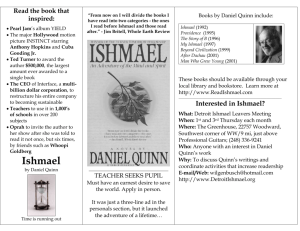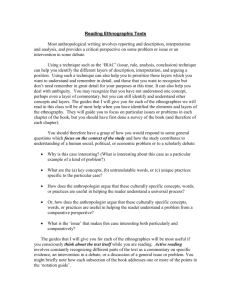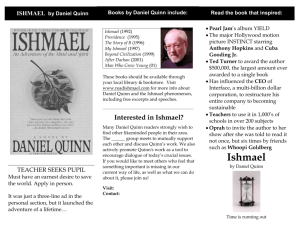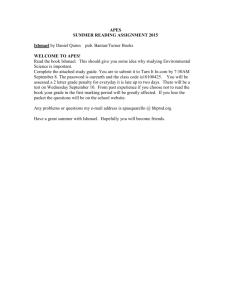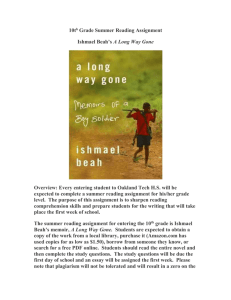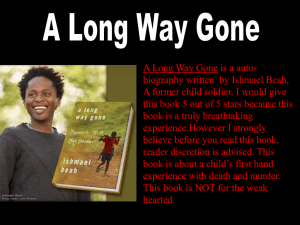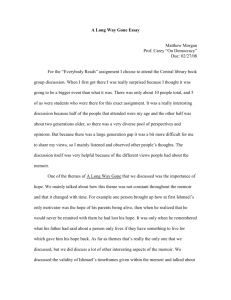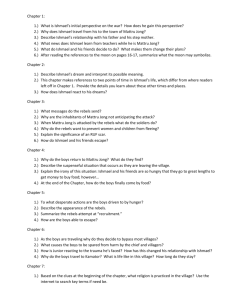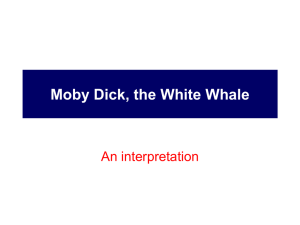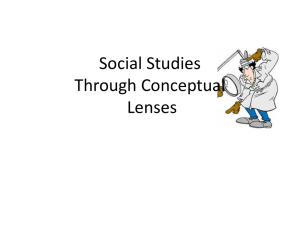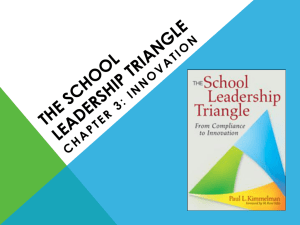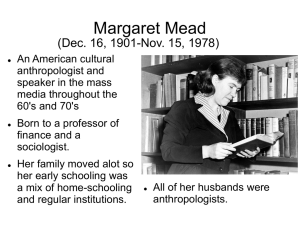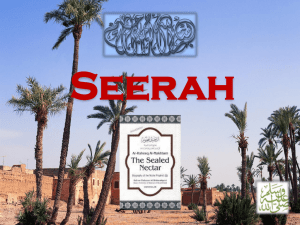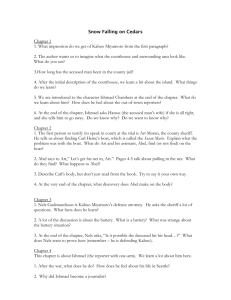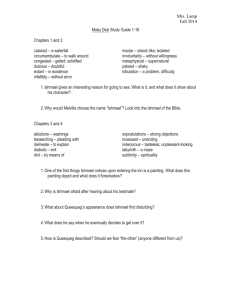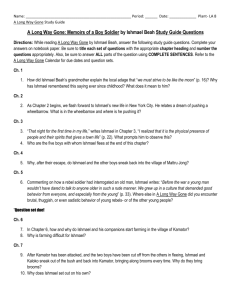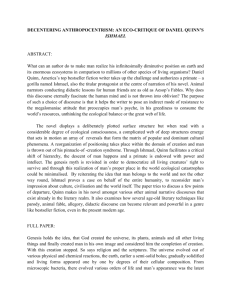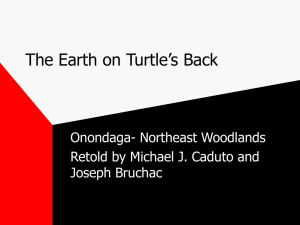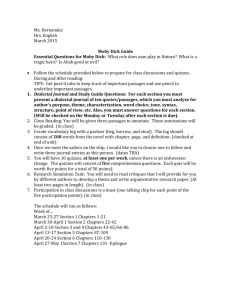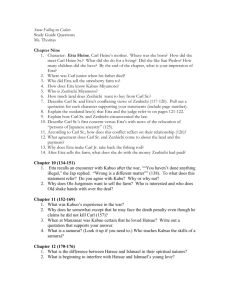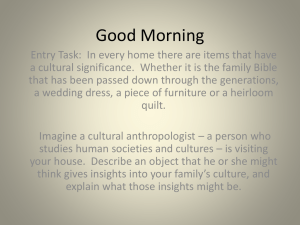Possible Questions: - Winthrop University
advertisement
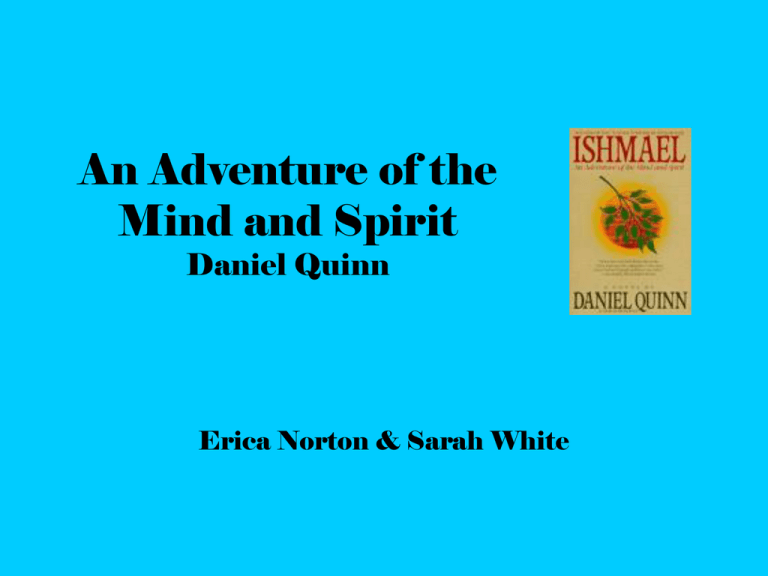
An Adventure of the Mind and Spirit Daniel Quinn Erica Norton & Sarah White ¿Myth? In this piece of Quinn’s Ishmael, the word “myth” appears often. What is a myth? • “No creation story is a myth to the people who tell it. It’s just the story.” Is this statement a “myth”? Can you agree with it, set aside religious/personal beliefs? Appeared vs. Evolved • The anthropologist explains how life appeared from bacteria to amphibians to reptiles to mammals, and how creatures living in trees evolved into primates. He concluded that “Species followed species, and finally man appeared.” Later there is a debate over the word “appeared”. Ishmael says that it is just a synonym for the word “evolved”. First of all, what is an anthropologist? What is the point of the human in the conversation being one? Do you think that “appeared” and “evolved” are synonyms? Why or why not? Is Man the End??? When Ishmael refers to “Mother Culture”, who is he referring to or what does she represent? (read quote on pg232) Why does Ishmael tell the story of the jellyfish? What was the purpose of the story coming from the perspective of the jellyfish? • “When man finally appeared, creation came to an end, because its objective had been reached. There was nothing left to create.” Do you think this is so, that now that man has evolved there is nothing left to create? How do we know that something more won’t evolve in the future? After all, it took billions of years for man to come into existence. Good Intentions Ishmael makes the point that the appearance of man is no more relevant than the appearance of jellyfish. In thinking about Ishmael’s logic and the perspective of the creation story he used, what do you think about the point he wanted to communicate? Does it make sense? Would you have been persuaded like the “moderately-educated” anthropologist? • The anthropologist tries to explain the gods’ intentions for the purpose of the universe: “The whole thing was made so that man would have a hunk of dirt to stand on.” Is man’s “hunk of dirt” that important? The Premise • Ishmael: “They [the gods] must have some special destiny in mind for him, but that’s not revealed here.” – Anthropologist: “True.” Is the anthropologist correct in agreeing that there is some “special destiny” intended for mankind? • Ishmael: “All right. That’s the premise of your story: The world was made for man.” What was the consequence of this premise as made by the anthropologist? Is this true? How and why do you think this mentality came about? Should we change it? Can we? Man vs. Nature • Anthropologist: “If the world was made for us, then it belongs to us and we can do what we damn well please with it.” Ishmael goes on to conclude that man has been doing what he wants to do with the world since he was born into it, and you [man] continue to do what you want because you believe that the world belongs man. We evolved after other creatures so wouldn’t this mean that we share the world with those creatures? The world doesn’t belong to us entirely. Man has evolved and has started taking over what doesn’t really belong to him. Would you agree or disagree? Works Cited Quinn, Daniel. “An Adventure of the Mind and Spirit.” The Human Experience: Who Am I?. Ed. Winthrop University. 6th ed. Littleton, MA: Tapestry, 2009. 230-236. Print.

